 Explore Bike Share
Explore Bike Share
Explore Bike Share executive director, Trey Moore
Explore Bike Share (EBS) announced the launch of a new pricing system last week. The Flyer talked with EBS executive director Trey Moore this week to find out more about the new prices, barriers to using bike share, expansion plans, and more.
Memphis Flyer: How did Explore Bike Share come up with the new prices?
Trey Moore: We launched based on some best guesses and assumptions based on examples of the industry in other cities. So with pricing, we were really following industry best practices at that point.
Since our launch, we’ve really been wanting to evaluate all aspects of the system to make sure it’s meeting the needs of the city. The combination of both surveys, hard data, and community engagement with many of our partners led us to the new prices.
MF: How does the new pricing system better serve Memphis?
TM: Pricing can be the biggest barrier for someone wanting to use EBS. The new prices lower the initial cost barriers. We’ve introduced the entry level price of $1.25 per 15 minutes for the many trips that can be taken very quickly. This is one of the more significant changes we’ve made to our pricing. We’re also excited about the 24-hour pass. Before $5 would get you just one hour, now it gives you a whole day. These prices are easy ways to introduce someone to EBS.
MF: Is there still an option to purchase a membership for yourself and someone in need of one?
TM: Yes, that’s the Pay-it-Forward option. It’s not one that we heavily promoted and we haven’t seen much traction on. It is still an option. But as far as providing those who need bike share memberships, what we have found is a better option is simply working with our community partners who know the needs of their neighborhood. So we make passes available to those partners so that they can share those within their community and network.
MF: How do EBS’s prices compare to other cities?
TM: In general, Explore Bike Share prices compare extremely favorable to other cities. I think all bike share systems are going through an evolution of evaluating their programs. Most sustainable bike share programs want to be equitable in the community.
When we look at nearby locations such as Nashville or St. Louis, our prices are equal if not lower. Many factors drive different prices in different cities. Within our market, our prices really aren’t driven by revenue, but driven by increasing access to bikes in a way that encourages more ridership.
MF: What kind of data does EBS collect?
TM: The data we collect is fairly robust because we can collect data based on the GPS system in the bikes. GPS gives us the bike location. So we know how many bikes are in each station within each neighborhood. So it helps from an inventory standpoint. It also gives us the number of check-outs, which helps us determine which stations are getting a lot of use.
It also tells us the very opposite. It tells us where bikes aren’t being checked out and where we need to do a better job of engaging the community. Then it makes us evaluate the barriers that are keeping the bikes from being used. We try to identify those barriers and what we can do as an organization to overcome those.
MF: What happens if a station isn’t getting much use?
TM: We would work with our community partners to do things to activate the community and get them aware of bike share. One way we do that is working with our community partners to do community rides. Those help communities overcome that initial barrier of just trying a bike share and [getting] them on the bike for the first time. Those have been very successful and popular so far.
MF: Who are some of your community partners?
TM: We’ve partnered with several organizations, like JUICE Orange Mound, the Collective also in Orange Mound, The Works CDC in South Memphis, Knowledge Quest, and soon Carpenter Art Garden. Carpenter has done an early community survey about bike culture and bike acceptance in Binghampton as we look to expand EBS there.
MF: Where all do you plan to expand this year?
TM: Binghampton will be our first full neighborhood expansion since our launch. This will be a totally new neighborhood we’re moving into that we’re really excited about. We are following the development of the Hampline pretty closely because we know the Hampline is going to be an important artery for those using bike share to move safely and access the Greenline.
We’re not sure of the timing when all the stations will go into Binghampton, but we are going to try to follow the completion of the Hampline, which should be finished some time this fall.
MF: Any other expansions planned?
TM: The other neighborhood we hope to move into is the University of Memphis Campus and the area around it. We’re hoping that’s going to materialize this fall. The university area and Binghampton are the main two, but we’ll also do the infill that will be necessary to fully connect the neighborhoods.
MF: How will these two expansions impact the overall system?
TM: What this will help us do is fill in additional opportunities between these neighborhoods. So between Binghampton and the university we’ll be able to add more stations and increase the density of the system. We’ll provide more access to the bike lanes on Park and Getwell in Orange Mound, as well as to the Fairgrounds. Each new neighborhood expansion gives us opportunities to have a greater impact on the areas we are already in through better connectivity.
MF: What is the target market for EBS?
TM: We think EBS is for everyone we see in Memphis. Bike share can literally meet a need for everyone here. Yesterday on the riverfront, where there’s a lot of recreational use, I saw pretty much all of Memphis represented on bikes.
I think riding a bike in Tom Lee Park or Overton Park will eventually translate into using bike share to meet everyday personal needs. That could mean to get to work or to run errands. But, I think there is an educational and adoption process of bike share that for many will be kind of a slow process.
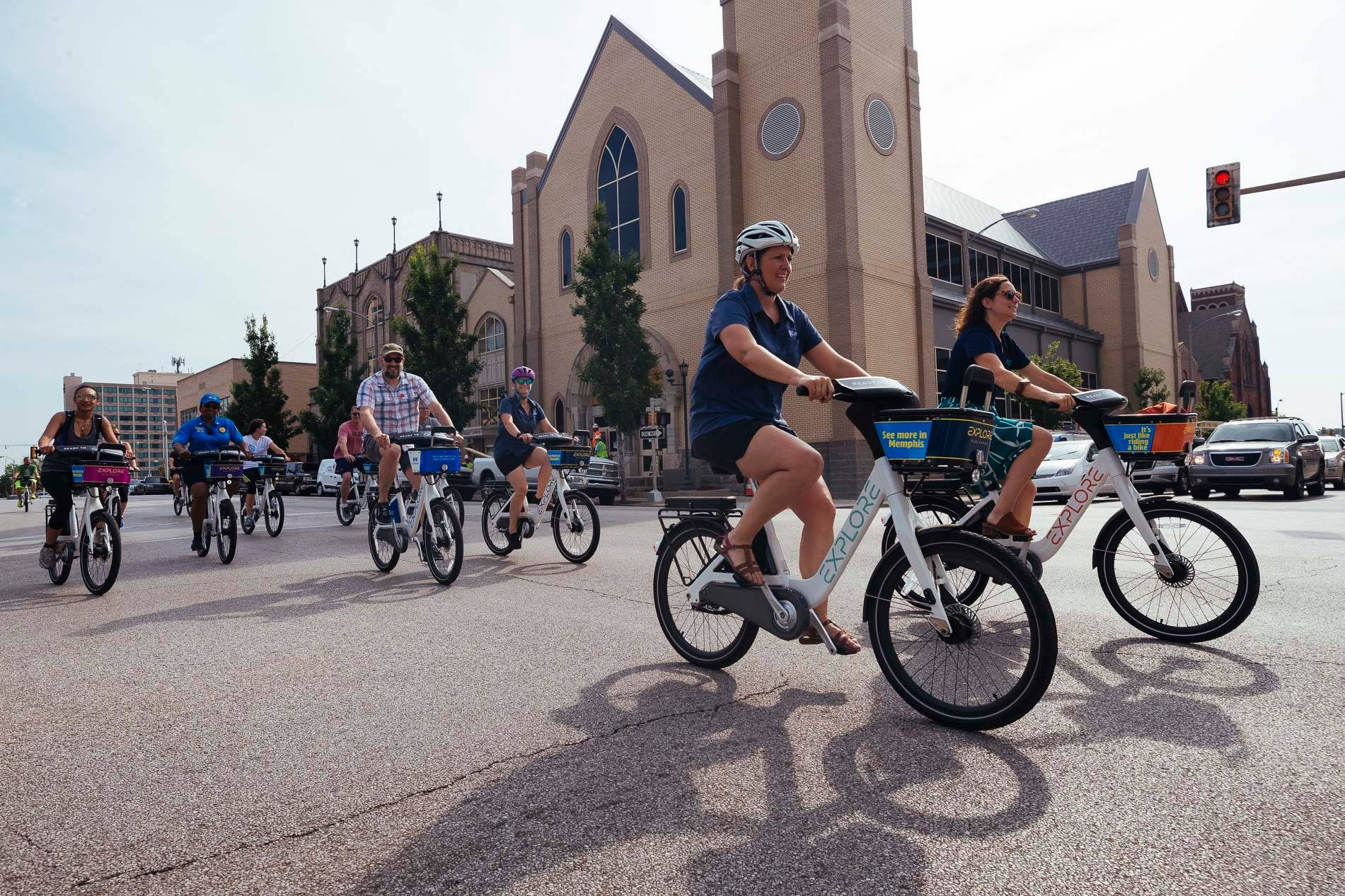 Explore Bike Share
Explore Bike Share
MF: How do you think Memphians have accepted the concept of bike sharing?
TM: There are certain demographics, certainly from an age perspective, that gravitate toward this type of mobility quickly. Millenials have gravitated not only toward the bikes, but also scooters. But there’s a bigger opportunity for impact for all of Memphis, which will take continued efforts on our part and other organizations with similar goals.
MF: How does EBS plan to increase its use by other demographics?
TM: We know we have a long way to go before we have the kind of impact a bike share system can have on any community. It’s hard for individuals — not to mention a whole neighborhood — to change their habits. It has to happen over a period of time. I think we have to be more consistent with our availability and engagements with communities.
We’re not by any means where we want the adoption of this system to be. This is particularly true for those neighborhoods beyond the Downtown core. So we’re going to continue to work with our partners to identify those barriers.
MF: What are some of those barriers?
TM: In addition to pricing, other barriers include station accessibility. We realized the unbanked population is still an opportunity. We need to come up with a really good solution for them and we are clearly not there yet. There’s room to improve cash payments options, as the one we have now is not as convenient as it could be.
MF: How can someone pay with cash now?
TM: It’s a fairly cumbersome process. You have to go to our warehouse on Keel to exchange cash for a bike pass. We want to allow cash payments in each of our neighborhoods, but to do that we have to have partners in the community who will accept cash on our behalf. There’s a whole transactional aspect of that that we haven’t hashed out. We’re continuing to look for unique opportunities with some of our corporate and community partners to make cash payments more accessible.
MF: Are there any other barriers that keep people from using EBS?
TM: Other barriers are beyond the control of EBS like the bike infrastructure in our city. We’re getting more of that and we’re excited about it. But we need to do a better job of advocating for quality bike infrastructure so that people in all neighborhoods have someplace safe to ride their bikes.
MF: What do you hope the future of EBS looks like here?
TM: What we hope to do is change the acceptance of biking as a legitimate alternative mode of transportation for any Memphis resident or visitor. But to do that, there’s obviously a lot of work to be done. I see momentum in the city with improved infrastructure for biking and acceptance of shared mobility options.
But infrastructure has to continue to improve so organizations like EBS can continue to expand and provide a service that is meeting the need within the community and increases access. We hope to have a robust system that is well-connected and accessible to all. We’re here for the long haul because bike share, frankly, just makes a community feel good.
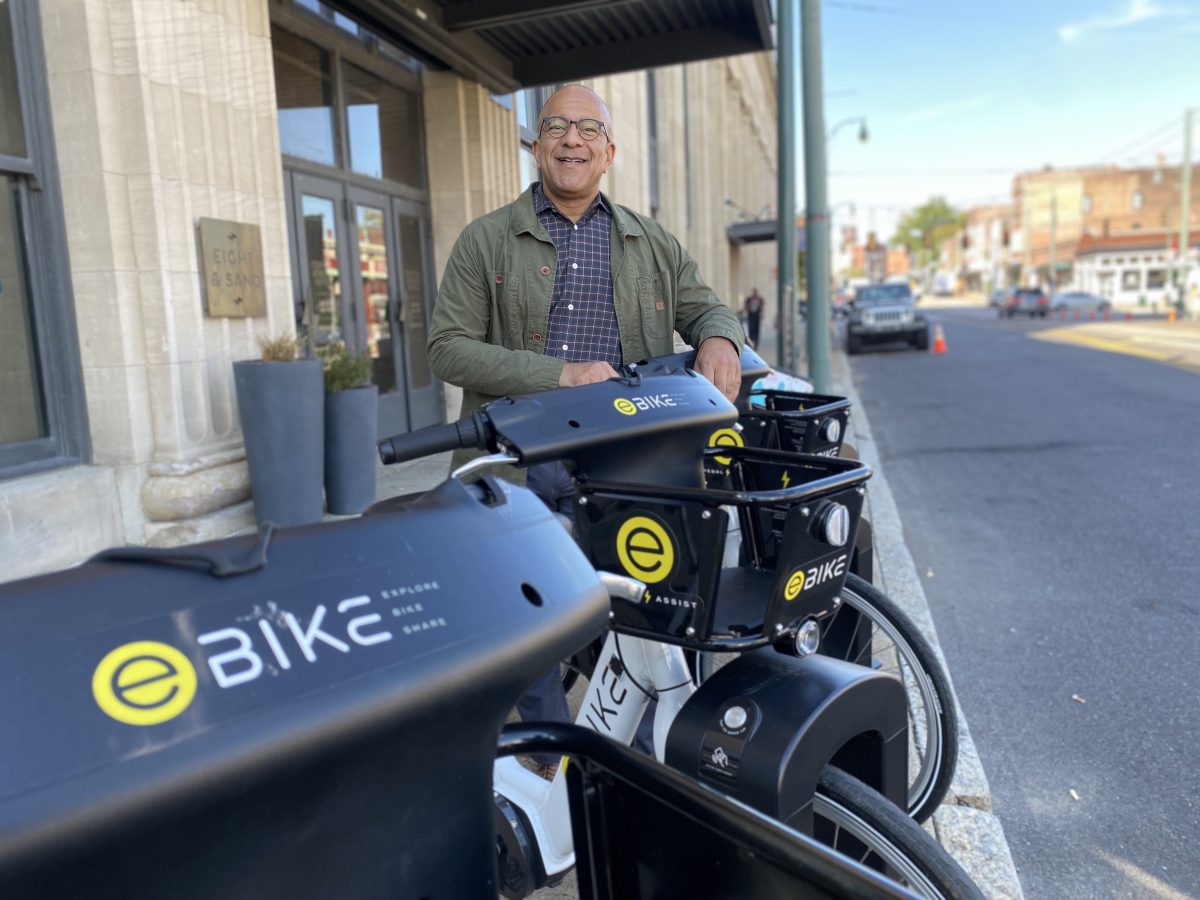
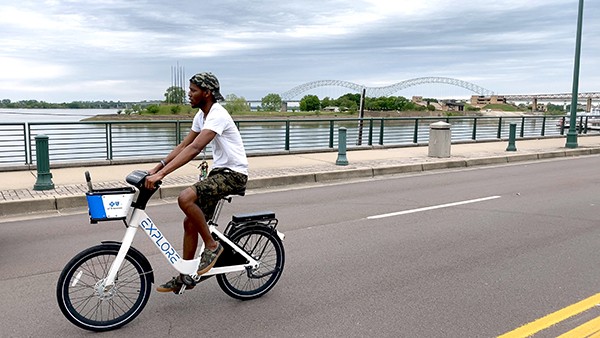
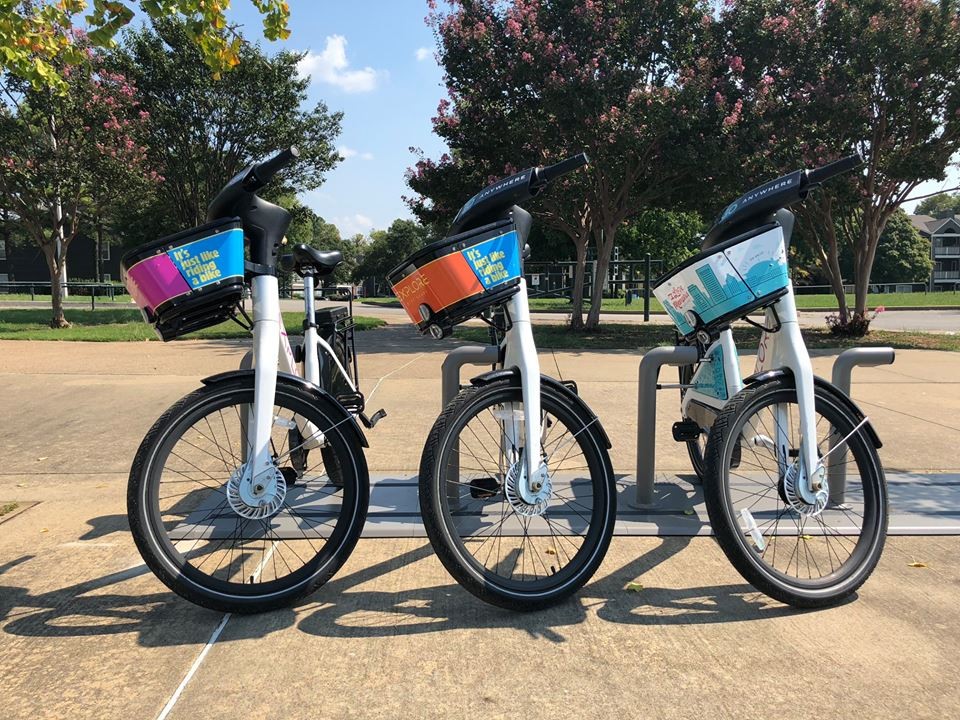 Explore Bike Share
Explore Bike Share 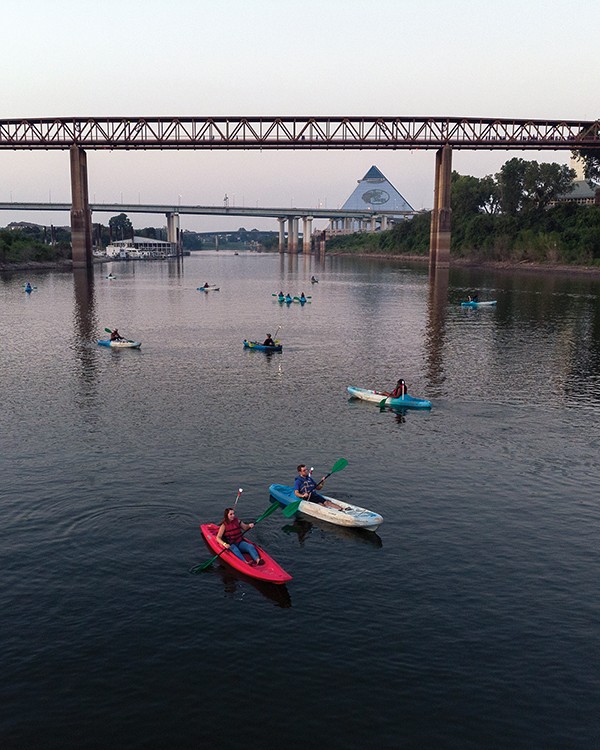 Memphis River Parks Partnership
Memphis River Parks Partnership 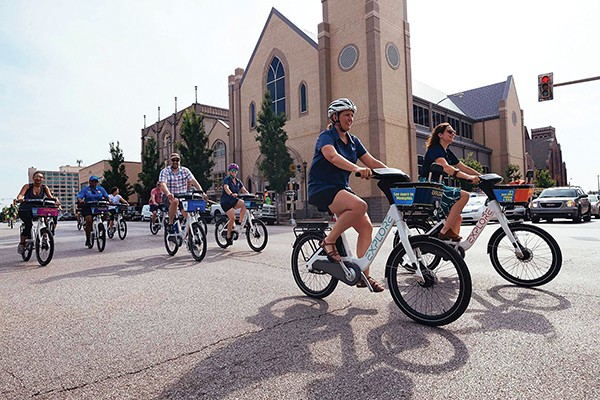 Explore Bike Share
Explore Bike Share 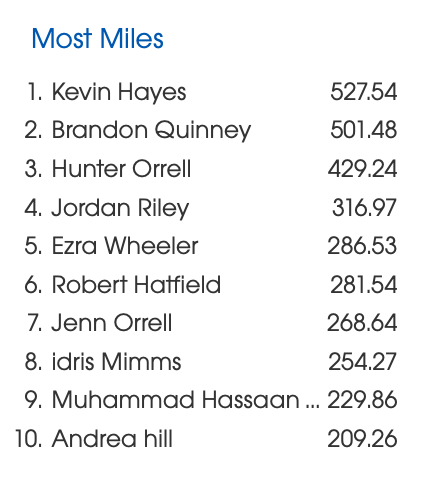 Explore Bike Share
Explore Bike Share  Explore Bike Share
Explore Bike Share 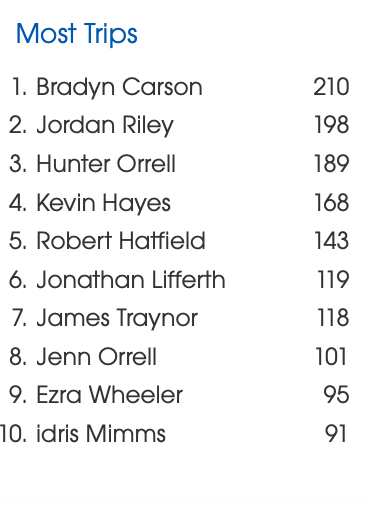
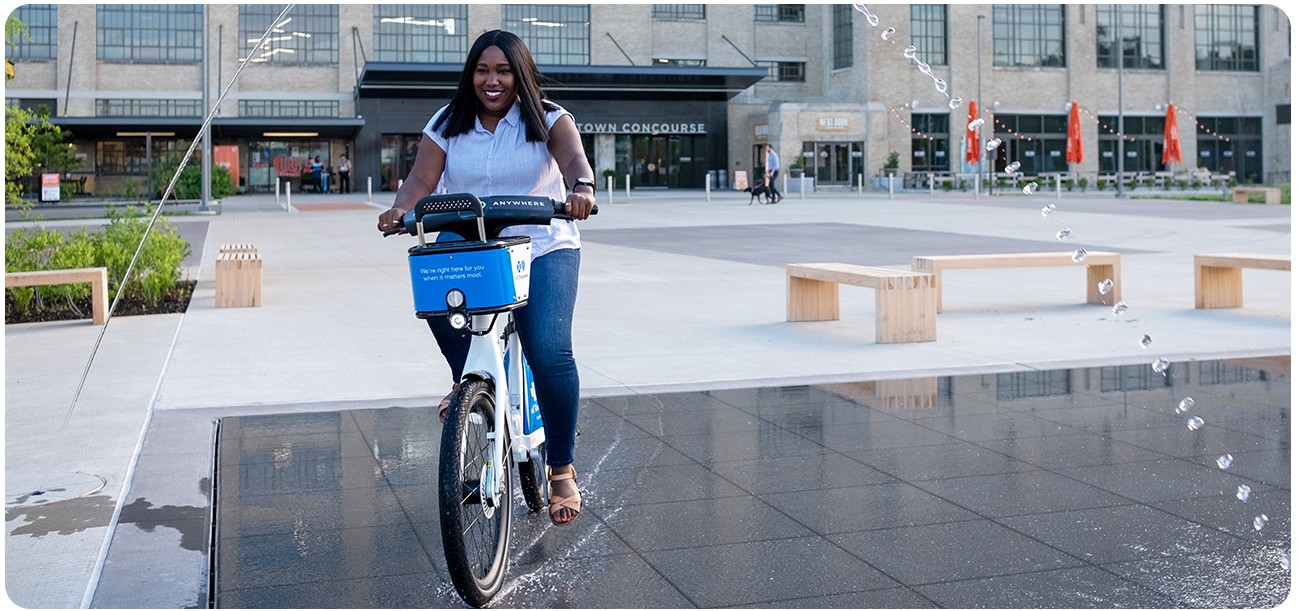 Explore Bike Share
Explore Bike Share 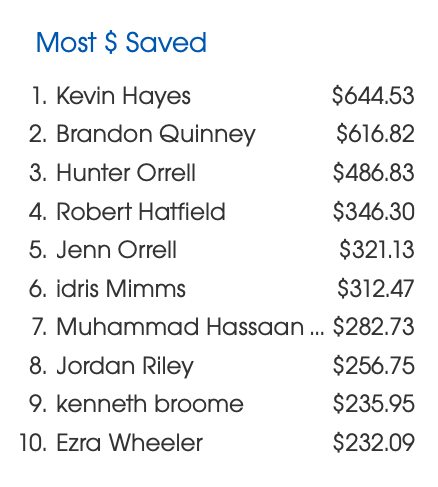
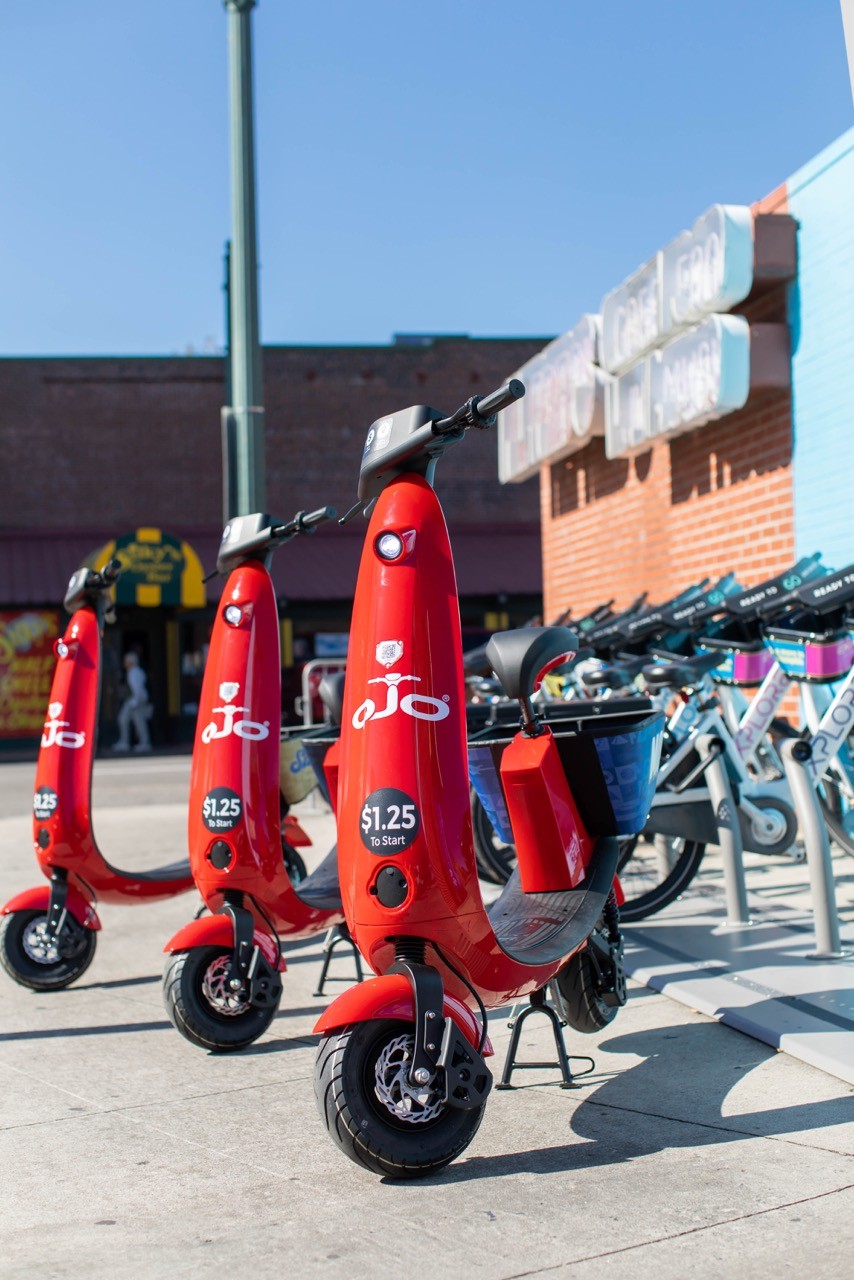 OjO
OjO  OjO
OjO 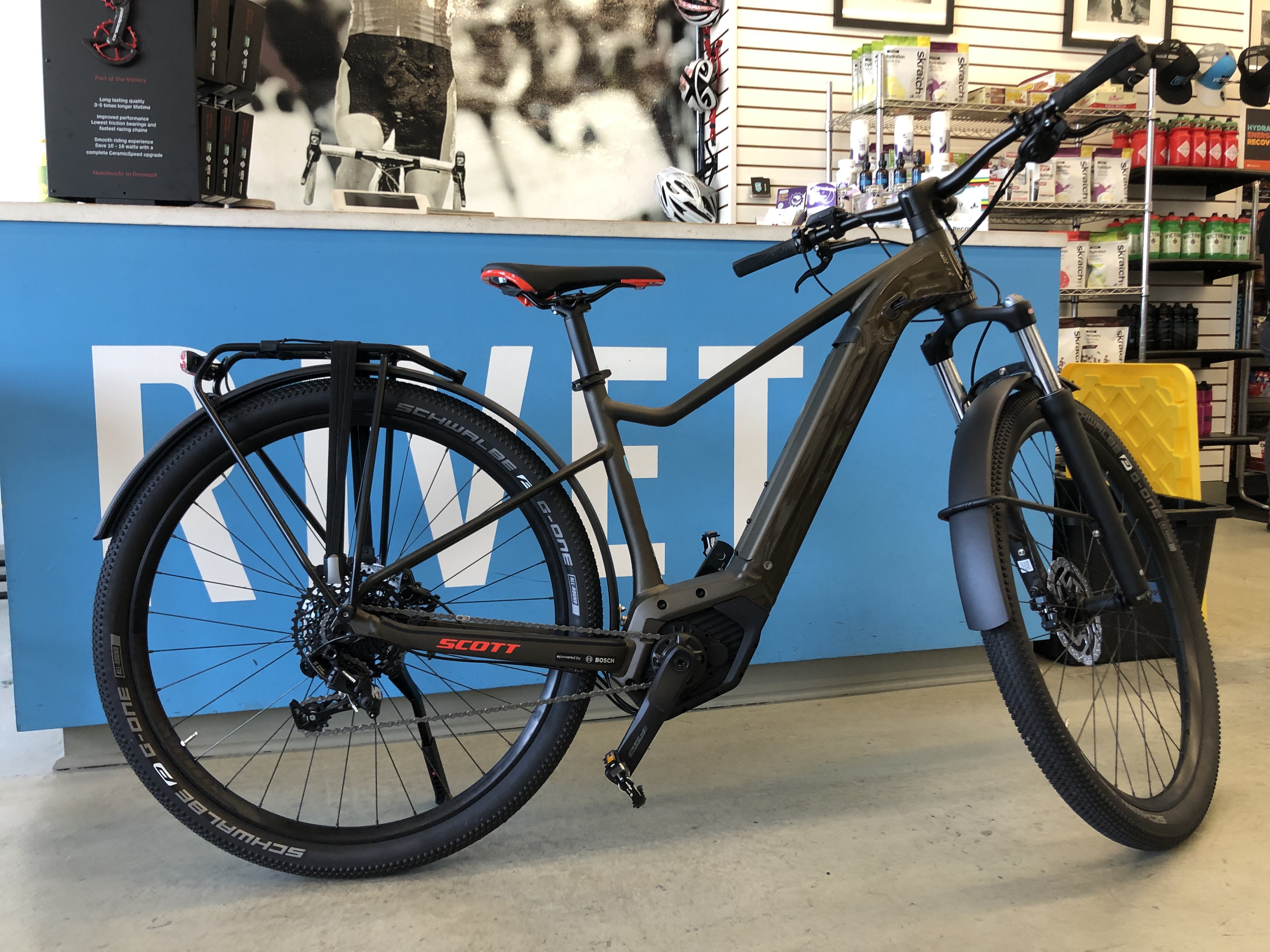
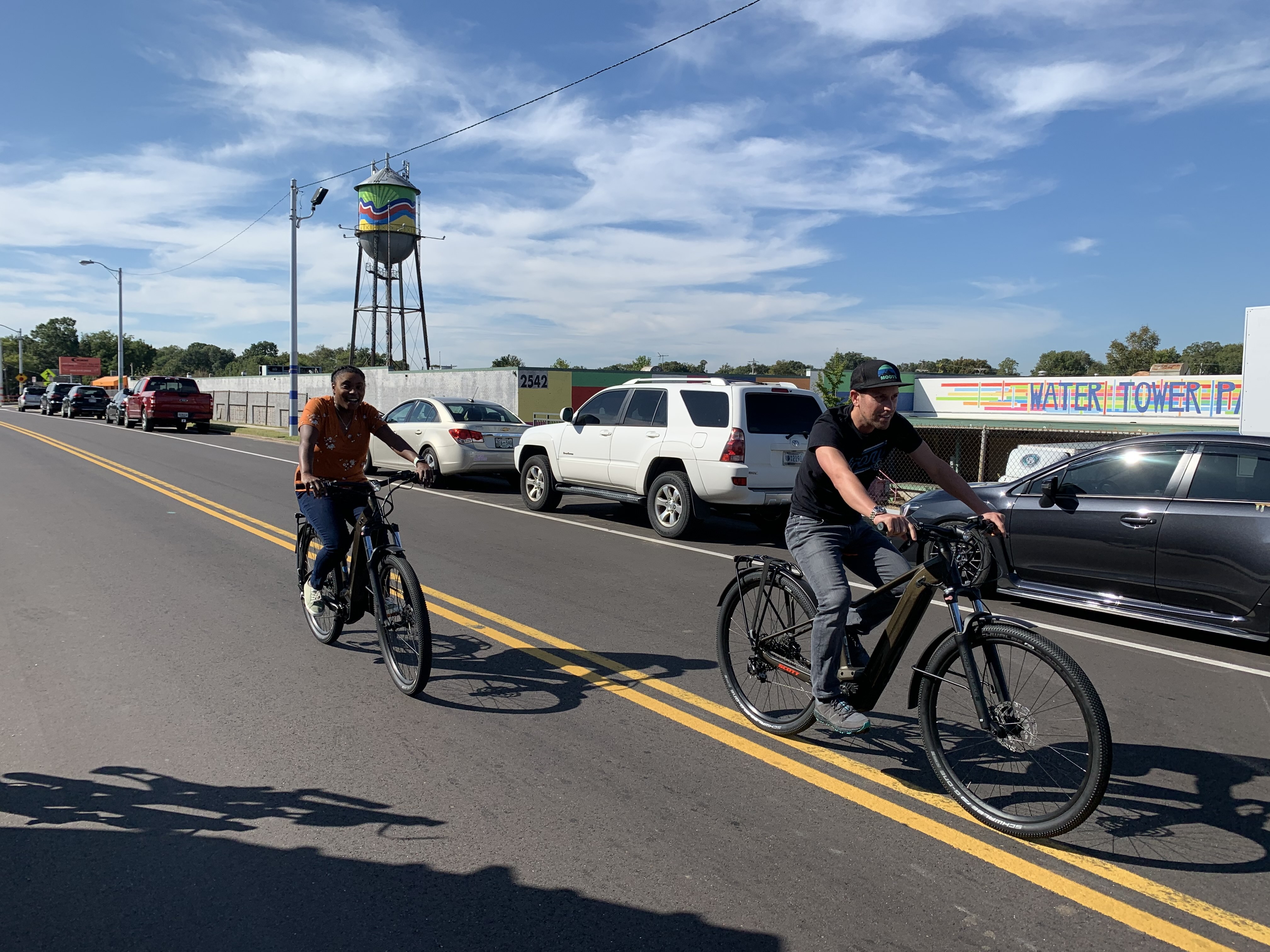
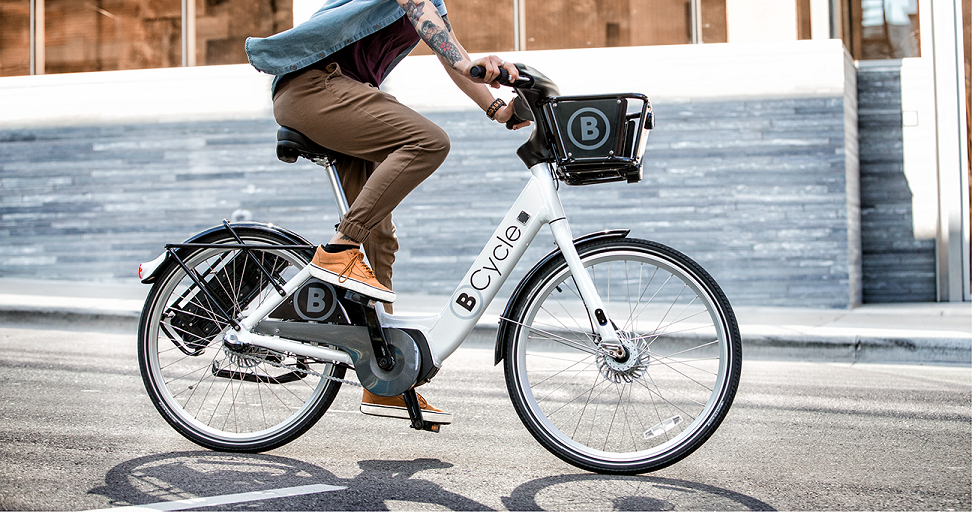 BCycle
BCycle  Explore Bike Share
Explore Bike Share  Explore Bike Share
Explore Bike Share  Facebook
Facebook  Explore Bike Share
Explore Bike Share  Explore Bike Share
Explore Bike Share